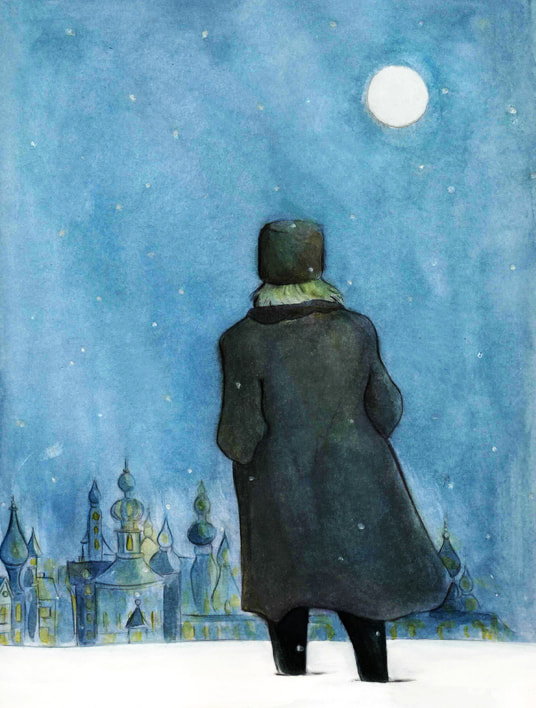|
Trusting God is a battle all believers will have to fight for, at some point in their faith journey. Alongside the Sacraments, here is a list of ideas on how to grow your trust in God:
1. Be desperate OK, so this one is not exactly a constructive action, but depending on your situation, this is a timeless tool God will use to draw you into His lap! You see, if you find yourself in a valley, you are in a moment in which God is giving you an opportunity to trust Him. Read the story of Hannah in the Book of Samuel for an example of desperate prayer and how God works through it. 2. Ask the Holy Spirit to fill you with faith - that is why Jesus sent Him! This is the mission of the Holy Spirit – to empower you with the gifts of the spirit, including faith, which empowers you to trust God. Jesus sent us the Holy Spirit after He went to the Father. He did this to empower us to walk in all the gifts we need to be holy and happy. God delights in filling us with gifts when we ask. Ask the Holy Spirit to give you the gift of faith! 3. Read stories of saints and listen to testimonies of faith-filled people Immerse yourself in stories of saints and modern testimonies that will bolster your faith and put you in the mindset of faithful people and how they think. You may find that it is very different from the way the world thinks. Faith-filled people don’t think from a perspective of lack but of abundance and possibilities. For faith-filled people, dead-ends are God’s way of showing a new way, and not the end of the road! 4. Read stories of God’s promises for His people in the Bible Trusting in God is an age-old story for His children. In the Bible, we see promises from the Old Testament, where Abraham is promised a son through Sarah, to the New Testament, where God promises Mary, through the angel Gabriel, that she will conceive the Son of God. A couple of my favorite (smaller) promise stories in the Bible include God’s promise to Simeon, and Jesus’s promise of heaven to the Good Thief on the Cross, who suffered on a cross alongside Him. As you read these interactions with God, note that in all of them, God has a good end in mind. He does not forget His children, and He finishes what He starts. He makes good on His promises. He does not leave things unfinished. The process may be different from what you imagined or take longer than you expect (like for Abraham), but it is not left unfinished. God works for completion. 5. Offer a sacrifice of praise. You can do this in Eucharistic Adoration, the quiet of your room, or anywhere you wish. Find a chapter in the Psalms that speaks to your current emotions and circumstances. Pray it aloud, and let the words speak to you. What verse in particular moves you and encourages you? Repeat it to yourself, and experience God's Heart for you, through it. 6. Pray for the grace to forgive – even if you don’t feel like it Did you know that forgiving someone is an act of trust in God? It is a declaration that God will have the final say in a situation and that His love will prevail. Ask God today to give you the grace to forgive those in your life who have wronged you, and if that is hard, add the little line: “Even if I don’t feel like it.” And see how the weight lifts off of you. 7. Ask God for the next step and make a movement of faith As you find yourself growing in love of God – a sign of faith and trust! - you might find yourself ready to take a step and ask God what He is asking of you next. Look at your situation and see how God might be using it. Are circumstances aligning in your life that might indicate a calling for you to change a situation or start a new project? Maybe to reach out to an old or new friend or make a move? If you have asked God, sat with the idea, and felt peace despite discomfort at the prospect, it is time to make a leap and know that God will catch you (and often in ways you could not have imagined!) A year from now, look back at the leap, see how God worked, and thank Him!
0 Comments
When I worked as a waitress at a diner, we had a lot of regular customers. One of them would sometimes come in alone, or with his buddy, and they would share a booth in the front and drink coffee. One day, he came in alone.
It seemed like any other day. I came up to his booth. "Hey! How are you doing?" "Good.” He paused, looking shell-shocked. “Well… not really. My mom just died. She drowned in her pool." I was at a loss. There was nothing that could be said but to give my condolences and listen to him talk about the accident and get it off his chest. It sounded like a mix of a heart attack and a pool accident. I can’t remember the details, but it was sad and absurd. Death is absurd in a stupid way. I think anyone who has experienced loss could agree with the statement: Death is stupid. Death really shouldn’t happen, and we know it in our core. It wasn't the original plan. God didn't make death. The diner team I worked with at that restaurant had, in their own lives, experienced more than their fair share of death and suffering. But they would listen to the highs and lows of the restaurant guests and would really know how to sit with their stories. Most of them had experienced enough suffering in life to know that they did not need to shy away from it. While I worked there I heard bloody tales of Vietnam and experienced the sudden death of someone who I had worked with on the team. It was a two-year experience of growth for me, and characterized by a very strong mix of bizarre suffering and exquisite joy. While it was one of my most difficult jobs, if not the most difficult, it was, in many ways, the most joyful and prepared me for greater ease in my future jobs. This brings me to the main thought of this post: Do our struggles and sufferings speak prophetically to our future and… within that... is it a prophecy of hope? When you were growing up and through the years, what have been your experiences? What joys have you experienced? What struggles have you been facing and enduring? Did you grow up in a tumultuous household? Maybe you learned diplomacy and will be able to negotiate between “nations”, in schools, in counseling, and on the playground. Did you experience grief and loss? Maybe you learned how to find meaning beyond the material. A loss can make you sadder but wiser. It makes you learn, very quickly, what is essential. Petty things may no longer appeal to you. What jobs have you held? You may not have had a passion for them, but how do you think you would have been a different person today if not for that job? In retail and customer service, people have learned patience, self-denial, and how to think of others. Maybe your past suffering is preparing you for a future where you will be able to handle these things with ease and endurance. Perhaps you will be able to stand in those future situations of struggle long enough that you will be able to transform it into something beautiful, in your own life and in the life of others. There is something about suffering that can awaken a capacity for deep joy if it brings you to trust the future that God has, instead of the sort of basic one you could come up with on your own. “If God causes you to suffer much, it is a sign that He has great designs for you, and that He certainly intends to make you a saint.” -St. Ignatius of Loyola * The sainthood is the reward and joy. Sainthood empties you to experience God, Who is Joy. One can only focus on suffering for so long. Even Jesus, in His Passion, looked forward to the joy it would bring afterward. There needs to be hope for something good. It is possible that your suffering is preparing you for a future of fulfillment. If you have a lot of suffering, it could be an invitation to trust and ask God to do wonderful things. That could even be having the faith to ask for inexplicable joy amid sorrow. Maybe your loss has emptied you and you are now ready to be filled in a way you could never have been before. Because if you were already filled, you would never have asked for something greater and would never have gotten to know how great God is. You may never have come to love your “littleness” to use a word that St. Therese of Lisieux loved. Perhaps you would never have come to love the fact that you cannot provide anything for yourself but that you have a God who can. Never feel as if your life has been a waste. Even at the hour of death, a realization about how much you have wasted life is an even further invitation to throw yourself into the hope of a good God and a beautiful heaven. The pain of a realization can empty you so much that God can rush in and fill it in a moment if you let Him. Because He is so good and so tenderly close. You will have the option to believe in that at every moment. And so, even if you are going through a hardship right now, look back at your past and imagine the possible good that could come in the future from your past experiences. And ask God for a filling of something new and wonderful with it. Because your past speaks prophetically to your future and - if you let it - it is full of hope. . . . * Ref: St. Ignatius Quote: (https://www.catholicstoreroom.com/category/quotes/quote-author/ignatius-of-loyola-1491-1556/page/18/) |
Quis ut Deus?In search of the Face of God. Personal blog with musings, thoughts, and stories. Archives
June 2024
Categories |


 RSS Feed
RSS Feed